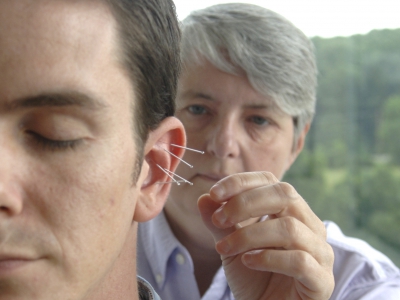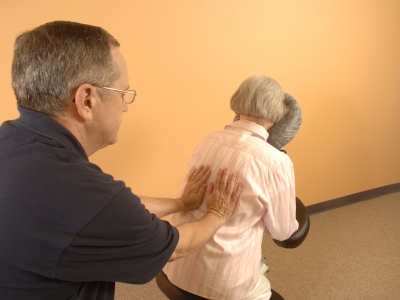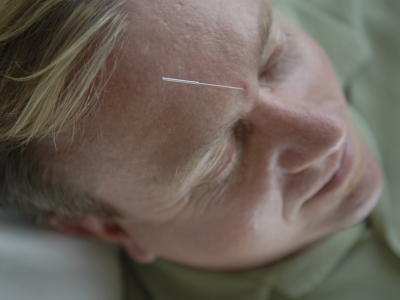Cancer and Integrative Medicine
Op/Ed
I despise news bytes that misrepresent health and medical research especially those pertaining to my passion for holistic, integrative medicine. A recent sensationalized claim about complementary medicine and cancer deaths has given rise to my righteous indignation. Please bear with me and read on – your health may depend upon it!
Evidence based integrative holistic care has long been used in the care of oncology patients, often improving quality of life and patient outcomes. I was dismayed to hear various news sources reporting on a July 19,2018 article from the Journal of the American Medical Association (JAMA)purporting that patients with cancer who use “complementary medicine” are more likely to die than those who don’t.
The original article documents that of the almost 2 million patient statistics reviewed, less than 300 were found to have both refused conventional care AND be using complementary care. This article, titled “Complementary Medicine, Refusal of Conventional Cancer Therapy and Survival Among Patients With Curable Cancers” was a statistical analysis, not a case review, using statistics gathered in a retrospective observational study by the National Cancer Database. This type of research is sometimes criticized as biased. Furthermore, although the number of patients with cancer was quite large (1,901,818) the number of patients using“complementary medicine” and refusing conventional care was quite small, only 258.
What’s more, this research documents two factors were associated, not necessarily causative. The authors are writing about 258 patients who have refused conventional medical care for cancer, and claim that the use of complementary care led them to do so without interviewing the patient’s surviving physician or family members. Here’s a quote from the abstract, “In this cohort study of 1,901,815 patients, use of complementary medicine varied by several factors and was associated with refusal of conventional cancer treatment, and with a 2-fold greater risk of death compared with patients who had no complementary medicine use.” Did the patients included in this statistical analysis refuse conventional care in favor of alternative care? Did the patients have other reasons for refusing conventional care? Were they using complementary care practices as palliative measures for quality of life and comfort? Or did the patients expect complementary care practices to cure them?
One of my pet peeves is that people, including the authors of this research, often use the words complementary and alternative interchangeably, but they are quite different. According to the National Center for Complementary and Integrative Health (NCCIH), “If a non-mainstream practice is used together with conventional medicine,it’s considered “complementary.” If a non-mainstream practice is used in place of conventional medicine,it’s considered “alternative.”
I am a strong proponent of INTEGRATIVE health care,described by the NCCIH as using complementary and conventional care in a coordinated way. I found it interesting that the NIH article about these terms cites “relief of symptoms in cancer patients and survivors” as an example of INTEGRATIVE care. Which brings me to another concern: the absence of effective communication between many patients and prescribers, so essential to coordinate complementary and conventional care. To ensure quality and safe care, all patients must report all self care measures to their prescribers, especially supplements including herbs and other remedies, and all prescribers must evaluate their patient’s self care measures objectively, free of attitudinal bias. Effective communication is vital.
Back to the news byte regarding complementary medicine and the care of cancer patients. Before accepting that complementary care can lead to death, please read the original article. You may also read about how integrative care can benefit patients with cancer in the 2017 clinical practice guideline about integrative breast cancer guidelines written by the Society for Integrative Oncology and endorsed by the American Society of Clinical Oncology (ASCO) in “Integrative Therapies During and After Breast Cancer.” While this guideline only pertains to the treatment of breast cancer, it provides clear research based recommendations that using integrative, holistic modalities enhances patient care. Specifically, from the ASCO summary, “Key recommendations include the following: Music therapy, meditation, stress management, and yoga are recommended for anxiety/stress reduction. Meditation,relaxation, yoga, massage, and music therapy are recommended for depression/mood disorders. Meditation and yoga are recommended to improve quality of life. Acupressure and acupuncture are recommended for reducing chemotherapy-induced nausea and vomiting. Acetyl-l-carnitine is not recommended to prevent chemotherapy-induced peripheral neuropathy because of a possibility of harm. No strong evidence supports the use of ingested dietary supplements to manage breast cancer treatment–related adverse effects.” For integrative health information regarding other forms of cancer and other diagnoses, consider visiting the NCCIH Clearing House.
Together, integrative, holistic healthcare along with conventional care is a powerful combination for patient well-being. Respectful,honest communication, free of attitudinal bias, must exist between patients and prescribers about complementary, alternative and integrative treatment, especially supplements, herbs and other remedies. I have been an advocate, professional,and patient in this field for most of my life, and clearly will need to continue to be an advocate. Please join me.
Photos Courtesy of National Center for Complementary and Integrative Health




Great job explaining this Gale.
Thank you, Cyndi! Your feedback means a lot. I’m glad to be walking this path with you.